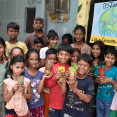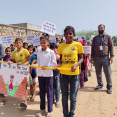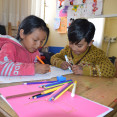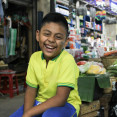
Around the world, Toybox partner staff work tirelessly to reach and support vulnerable children and young people in street situations.
Street and Protective Environments Project Co-ordinator, Cristian, has been working for Toybox's local partner in Bolivia, Alalay for the past 10 months. In this interview we hear more about his work and the hopes he holds for the children and young people he encounters.
can you Tell us a little about yourself and your work?
I have a background working with adolescents and young people in situations of risk, vulnerability and marginalisation. This has included working with youth gangs, young people deprived of their liberty and the street population. It’s been nearly nine years now that I’ve been working with these social groups.
A normal working day for me involves a lot of activity and movement. My day might start with a co-ordination meeting, either at the Alalay office, or at a partner institution. These meetings usually focus on a specific case, often discussing challenges related to obtaining documentation, registering with the Unified Health System, or enrolling in the formal education system.
After that, I might meet with one of our participants for individual follow-up. This usually involves sharing a meal with them. This not only ensures they’re getting something to eat, but lets us discuss their current situation, including any changes, improvements, or new challenges.
If I’m not doing an individual follow-up, I might conduct a home visit to better understand the child or adolescent’s family context. These visits often require travel between municipalities, as participants typically live in remote, outlying areas due to their socio-economic situation.
Throughout the day, I also monitor the activities carried out by the rest of the project team. They regularly update me on progress and challenges - whether in workshops, follow ups, meetings or administative processes. As a result, I’m often glued to my mobile, replying to messages, co-ordinating with other institutions to ensure our participants receive the support they need, or seeking legal advice when needed.
In the evening, my day usually continues with desk-based work: writing or reviewing reports, responding to emails, and occasionally taking emergency calls from the people we support (for example cases involving health issues, or violence).
Pictured below: Cristian assists a young boy requiring emergency medical care. (L) Alalay staff on the streets of La Paz, during an outreach session. (R)
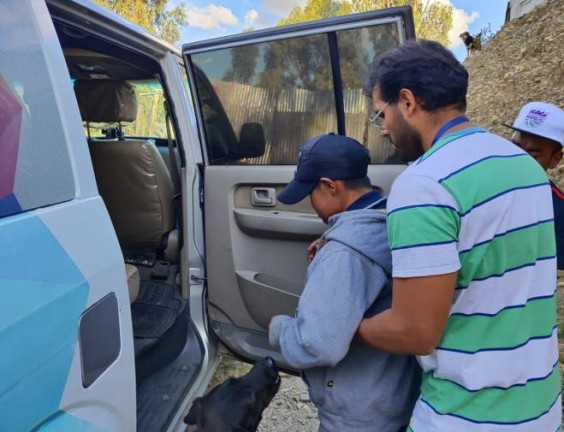
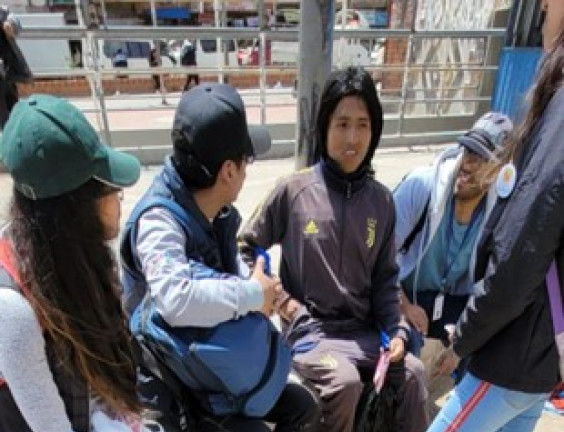
What motivates and inspires you in your work?
A long time ago I made a commitment to work with vulnerable, invisible, and stigmatised populations. Every time I hear the life story of a child or young person living on the streets and think about all they’ve been through - often without anyone to listen, support, or guide them, it strengthens and renews my commitment to them.
These life experiences stir up all kinds of emotions and feelings in me: compassion, empathy, sadness, and, I have to be honest - often anger. There's a rock band in Canada called Billy Talent who have a song called "Don’t Count on the Wicked", and there’s one line in particular that deeply resonates with me: “turn your anger into hope.”
I deal with injustice of all kinds on a daily basis, but I’ve learned that the anger it causes in me must be transformed into hope - not for myself, but for the people we work with. And I don’t just mean our target population, but also anyone - any person or institution - who thinks that the issue of street-connected children is a lost cause and that nothing can be done.
What are the biggest challenges you face in your work and why?
The biggest challenge is the lack of regulation - the absence of a specific law for people living on the streets. While Law 548 recognises children and adolescents in street situations, there remains a legal vacuum when it comes to triggering certain protection mechanisms and restoring the rights of this population.
As long as there is no specific law for street-connected children and adolescents, our ability to act will always be limited.
Sadly, there are many legal grey areas around which state institutions - and at what level - are responsible for providing care, support or protection. This means that at a public or governmental level, there are no dedicated spaces for supporting street-connected children. There are also no staff properly trained or sensitised to this social issue. Of course, it's part of our project’s mission to offer training and awareness-raising opportunities - but cities like La Paz and El Alto are vast, and we simply can't reach every area.
Last quarter, a young man living on the street went to a hospital with a young woman (also at high social risk) to request emergency medical attention. Because of his street situation, he was only briefly seen, and the medical staff said he didn’t need emergency care. Within a very short time, his health deteriorated and worsened until he passed away.
How can we promote autonomy or ensure that they are recognised as rights holders, if street-connected individuals are not attended to unless they are accompanied?
A proper legal framework would help us respond to that frustration and urgent need. We must continue fighting for a specific law for the street population, for funding, for designated support spaces, and more.
Pictured below: Children from the Toybox supported project complete an assessment to gauge their current reading and writing skills. (L) Caregivers participating in a positive parenting workshop (R)
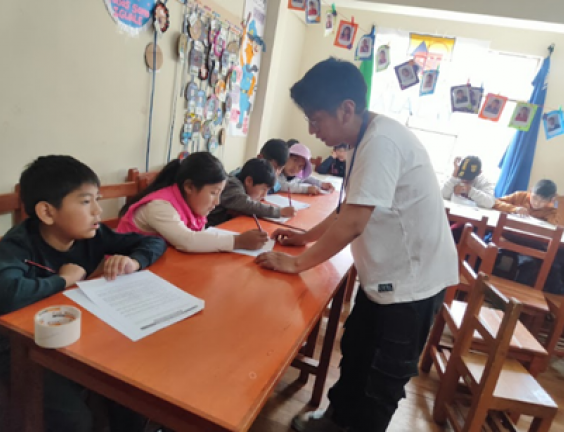
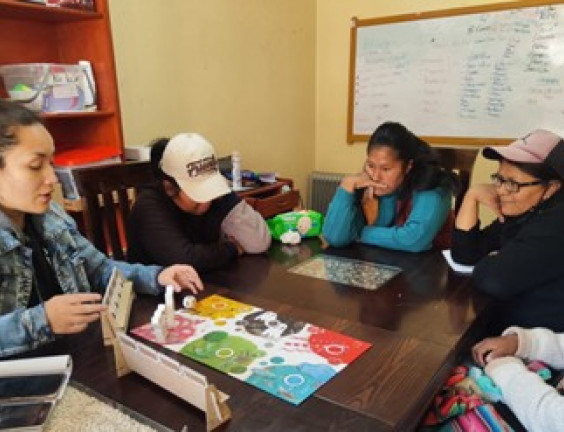
What has been your proudest moment while working for Alalay?
One of our participants, a 20-year-old young man, completed his customer service training at a restaurant that partners with Alalay. This milestone was more than just formal training in the service industry, certified by an organisation that supports vulnerable populations—it also marked his first entry into formal employment.
When I spoke with him, his pride and happiness were truly infectious.
While many of the young people we support have work experience, it is typically informal or casual. Gaining access to the formal job market is not only a personal breakthrough for him but also a shared success for all the young people we work with.
What are your hopes for the children you work with?
Despite all the work we do, my greatest hope for the children we work with comes down to two things.
Firstly, that they develop a critical mindset, allowing them to reflect on and question people and situations that could put them at risk (including life on the streets) and the options or alternatives around them.
Secondly, I hope they develop true autonomy - the kind that allows them to become independent from our organisation, and fully capable of making their own decisions.
